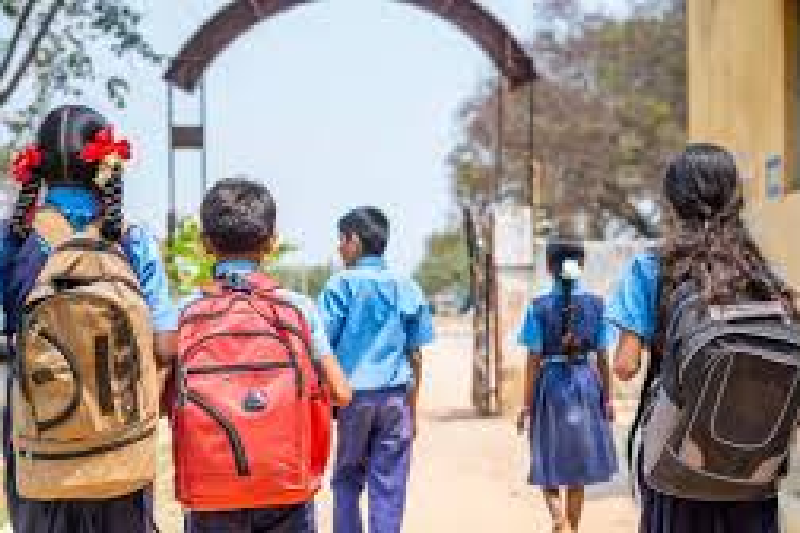
Uttar Pradesh Launches 'Learning by Doing' Programme to Empower Students with Practical Skills
In a bold step towards reimagining school education, the Uttar Pradesh government has officially launched the 'Learning by Doing' (LBD) programme to integrate practical skill development into the academic curriculum of government schools. Designed for students from Classes 6 to 8, this pioneering initiative seeks to make education more experiential, linking classroom knowledge with real-world applications.
A Vision Aligned with NEP 2020
The LBD programme aligns with the National Education Policy (NEP) 2020's emphasis on vocational training, critical thinking, and holistic development. The initiative is being implemented under the Samagra Shiksha Abhiyan and is a part of Chief Minister Yogi Adityanath’s broader vision of a self-reliant and empowered Uttar Pradesh. It aims to bridge the gap between education and employability, helping students acquire life skills from a young age.
"This initiative goes beyond textbooks. It aims to prepare students for real-life challenges by equipping them with practical knowledge and skills," stated an official release from the Uttar Pradesh government.
Scope of Practical Training
The programme offers skill-based training in a variety of disciplines such as:
- Woodwork
- Metalwork
- Energy and Environment
- Agriculture and Horticulture
- Health and Nutrition
These areas have been carefully chosen to foster technical, environmental, and life competencies critical for urban and rural students.
Teacher Empowerment for Effective Implementation
The state government has provided four-day multi-skilling training to science and mathematics teachers to ensure the program's success. These sessions are designed to equip educators with the knowledge and confidence to facilitate practical activities effectively. This training also reflects a shift in the traditional role of teachers—from mere disseminators of knowledge to facilitators of hands-on learning.
Collaborative Support from UNICEF and Vigyan Ashram
The programme has been developed with technical assistance from UNICEF and Vigyan Ashram, a pioneering institution known for promoting rural technology and innovation. The State Council of Educational Research and Training (SCERT) has curated and approved a comprehensive teacher manual comprising 60 skill-based activities. This manual acts as a guideline for teachers to incorporate experiential learning into their daily lesson plans.
Statewide Implementation and Infrastructure
Following the success of its pilot run in 60 schools across 15 districts—where 5,937 students received training—the government is now scaling up the initiative. For the academic year 2024-25, modern LBD laboratories will be established in 2,274 upper primary and composite schools across all 75 districts of Uttar Pradesh.
Each lab will be equipped with 205 types of modern tools and apparatus, enabling various practical experiments and activities. School Management Committees (SMCs) have been allocated consumables and raw materials necessary for conducting these activities to ensure smooth functioning.
Impact Observed During Pilot Phase
The pilot programme yielded impressive outcomes, notably a significant increase in student attendance and engagement. Students reportedly showed greater enthusiasm for learning, as the shift from rote memorisation to hands-on experience made lessons more relatable and enjoyable.
Future Expansion Plans
The government has ambitious plans for further expansion. Under the Samagra Shiksha and PM SHRI (PM Schools for Rising India) schemes, the programme will be extended to 3,288 schools during the 2025-26 academic year. This expansion is expected to benefit lakhs of students across the state.
Promoting Dignity of Labour and Gender Equality
An essential aspect of the LBD initiative is its emphasis on the dignity of labour. By engaging students in hands-on tasks such as carpentry, electrical work, and gardening, the programme seeks to dismantle the outdated bias against manual work. Remarkably, girls actively participate in traditionally male-dominated trades like engineering and electrical work, fostering a culture of gender equality in practical education.
A Step Towards a Self-Reliant India
Minister of Basic Education, Sandeep Singh, highlighted the programme's alignment with the Skill India Mission. “This initiative is not only nurturing skilled, self-reliant citizens but also laying the groundwork for a strong and self-sustaining Uttar Pradesh,” he said.
By embedding practical education within the school system, the state government aims to create a generation of confident, competent learners ready to contribute meaningfully to society.
Conclusion: Transforming Learning Experiences
The 'Learning by Doing' programme marks a transformative chapter in Uttar Pradesh’s education journey. By redefining the purpose of schooling to include life skills and practical knowledge, the initiative offers a robust model for other states to emulate. As the programme unfolds across thousands of schools, its impact will likely be far-reaching, not just in academic outcomes, but in building an empowered and skilled young population.



